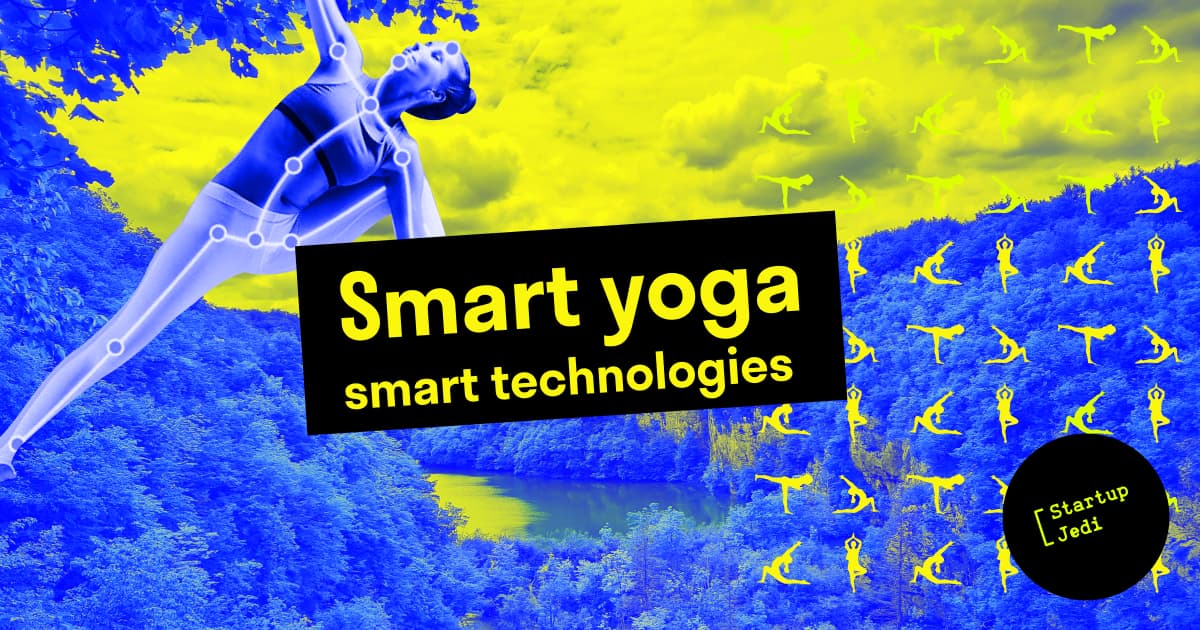
Startup Jedi
We talk to startups and investors, you get the value.
Everyone comes to ancient yoga practice in different ways. But it becomes not only practice but also a business, sometimes even tech business: someone could have started practicing yoga 7 years ago and now is a co-founder of a smart yoga-coach in your phone like Misha Lyalin, CEO of ZeptoLab, who invested in Zenia—belarussian yoga-startup.

Startup Jedi
We talk to startups and investors, you get the value.
There are many types of yoga, from the peaceful hatha to the high-intensity power yoga. All types take your workout to a level of mind-body connection. It can help you relax and focus while gaining flexibility and strength. Yoga can also boost your mood. But it’s also a huge market which consists of about 300 million yoga practitioners and 16 billion dollars spent yearly on sessions and equipment.
There are different levels of “automation” of the yoga practice nowadays. But the tech makes only the first steps in this direction. The easiest one is just watching videos with asanas on your mobile phone or TV. Later on you might wish, for example, to join the community of yogis to share your knowledge and receive collective wisdom from others.
If you are using an iPhone, my personal advice is to check the Pocket Yoga app which allows you to create your own yoga routines or browse and use routines created by other people. The simplest apps to kickstart your yoga practice are Yoga 8 for iOS or Daily Yoga for android devices. Most of the apps use a freemium model where you can get some free stuff but need to pay (once or by monthly subscription) for something more advanced.
The practice of yoga is practice of awareness (something similar to meditation which is another practice of awareness). That’s why yoga becomes a new activity every day. Every day you pay attention to different aspects of this practice — breathing, posture, thoughts etc. Even yoga teachers continue to discover something new in it every day. And you will never say that you do perfect yoga practice because there is always room for improvement.
...

Future stream at Emerge conference had an interesting panel about the future of yoga and the tech role in this practice. Vladimir Batayev was moderator of this discussion. He is an independent consultant at Zaz Ventures, which has raised €100m+ of funding for various innovative companies & consortia. Vladimir has personally led 50 SMEs to funding under Horizon 2020 SME Instrument in ICT, IoT, AI, security, transport, logistics, energy, wastewater treatment, robotics, additive manufacturing, biotechnology & medicine. He invited Eddie Stern, the author of “One simple thing” book. Eddie Stern is an Ashtanga Yoga teacher from New York City. He has a passion for engaging in a multidisciplinary approach to furthering understanding, education, and access to yoga through technology, scientific research, collaboration, and encouraging diversity in all aspects of his work. He studies philosophy, Sanskrit, ritual, science, and religion, and has a great love for music and art, which play a big role in his teaching of yoga. Misha Lyalin serves as the Chairman & Chief Executive Officer at Zeptolab. He also serves as a Managing Director at Kite Ventures. He served as the Chief Executive Officer and Founder at Reaxion. He also serves as Advisor at Colle Capital Partners. Before ZeptoLab he built a number of businesses in Russia and abroad: a biggest coalition loyalty & payment program in Russia; Zagruzka.com — leading content and b2b telecommunication services provider and others. In the early 2000’s Misha founded and led Reaxion — mobile game developer and publisher for feature phones. He also invests in startups and is an active member of the entrepreneurial community. He was the third panelist.
COVID-19 made practicing yoga a real necessity at home during the “shelter in place” period. But we still need yoga teachers to give us feedback and guide us in our practice. Zenia is the first virtual yoga assistant. The app uses machine learning and movement recognition technology to guide through practice. Zenia adapts to the pace, monitors progress and gives feedback based on individual metrics. This makes it very similar to a human yoga teacher. The mission of the app is to empower both students and teachers of yoga. For teachers it could be beneficial to build personal relations even if the student is practicing alone at home. The students are able to get everything they would expect from the teacher but from their mobile phone.
One of the jobs of a teacher is to see what a student can’t see. And Zenia is able to see even better than your usual yoga teacher. When there are no yoga teachers in your area you could just use an app. This way we can use technology to make our lives even better. But don’t forget that there is no substitute for human connection. Eddie Stern thinks that this technology is needed not to substitute but to cooperate with yoga teachers giving them more power to interact with their students.
What’s next? This technology will be with us forever from now. Someday we can have an AI yoga teacher in virtual or augmented reality that would sound and look like your human yoga teacher. And one day an app could check your practice and issue certificates both to students and teachers. Just remember that people like to play games and we could use gamification for yoga apps to make the ancient practice fun.
Facebook: facebook.com/StartupJedi/
Telegram: t.me/Startup_Jedi
Twitter: twitter.com/startup_jedi
Comments